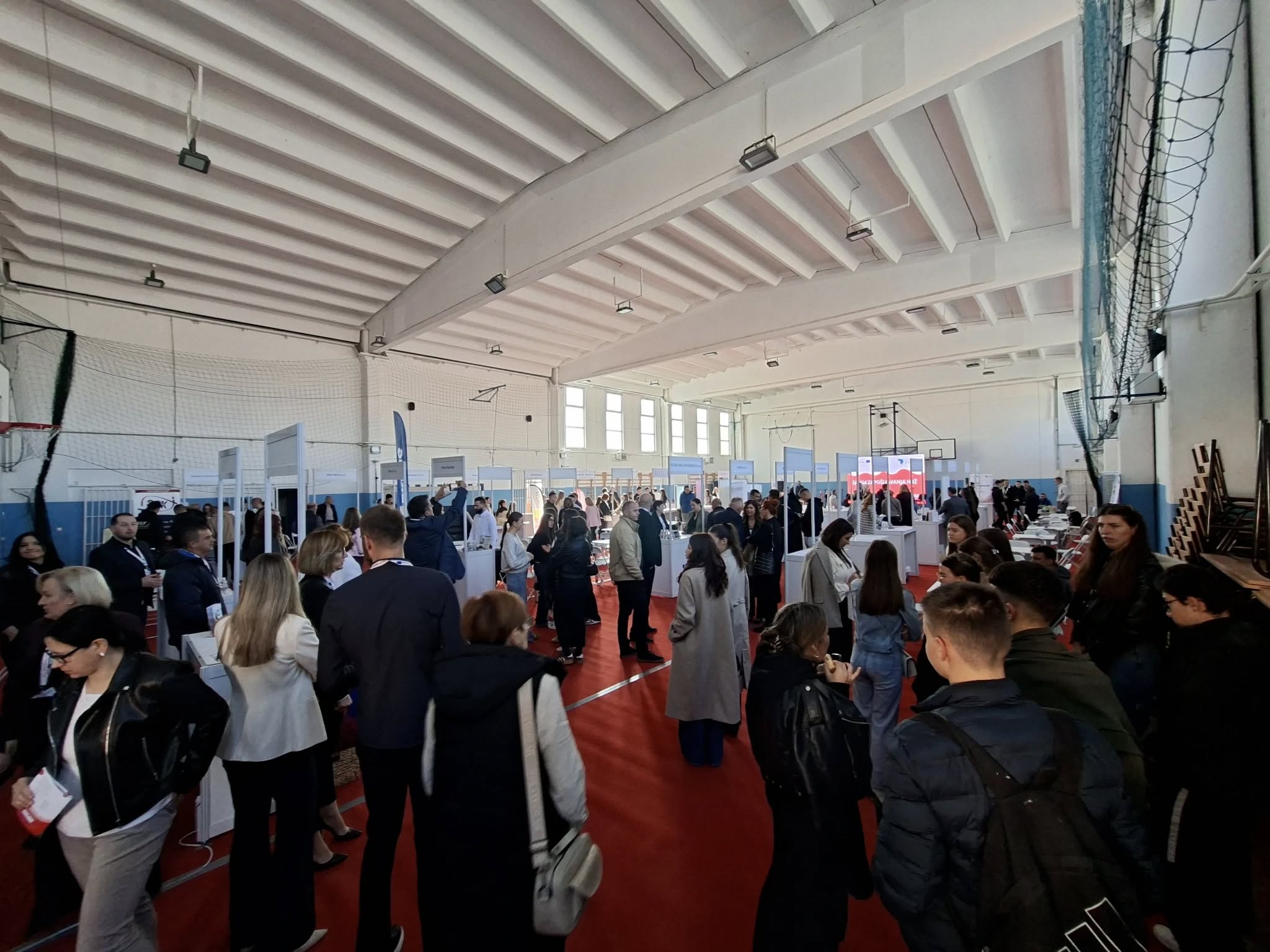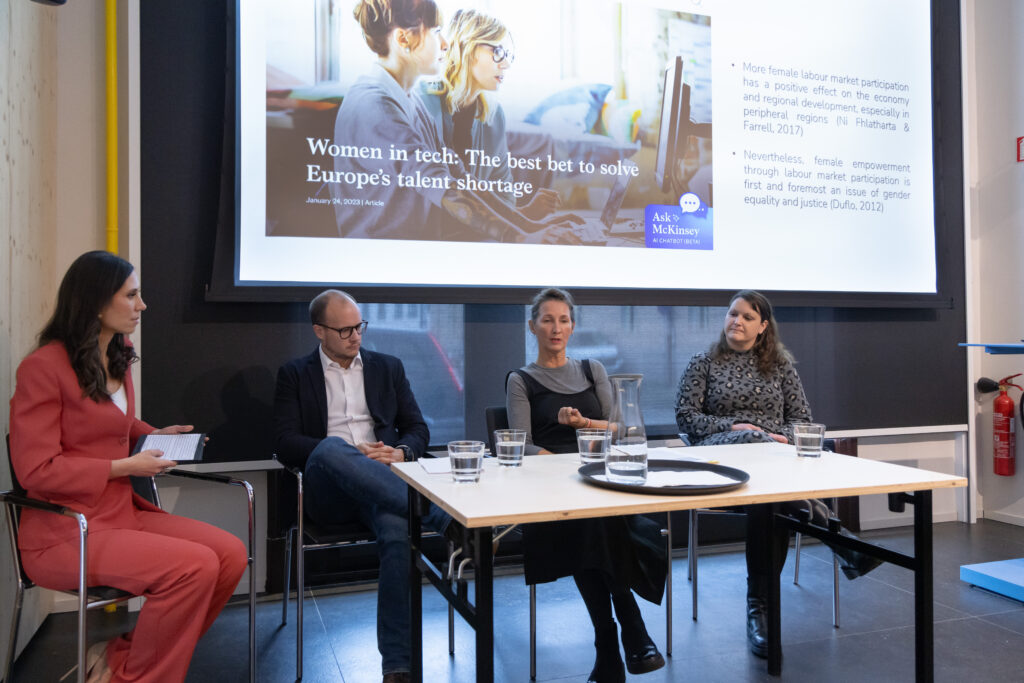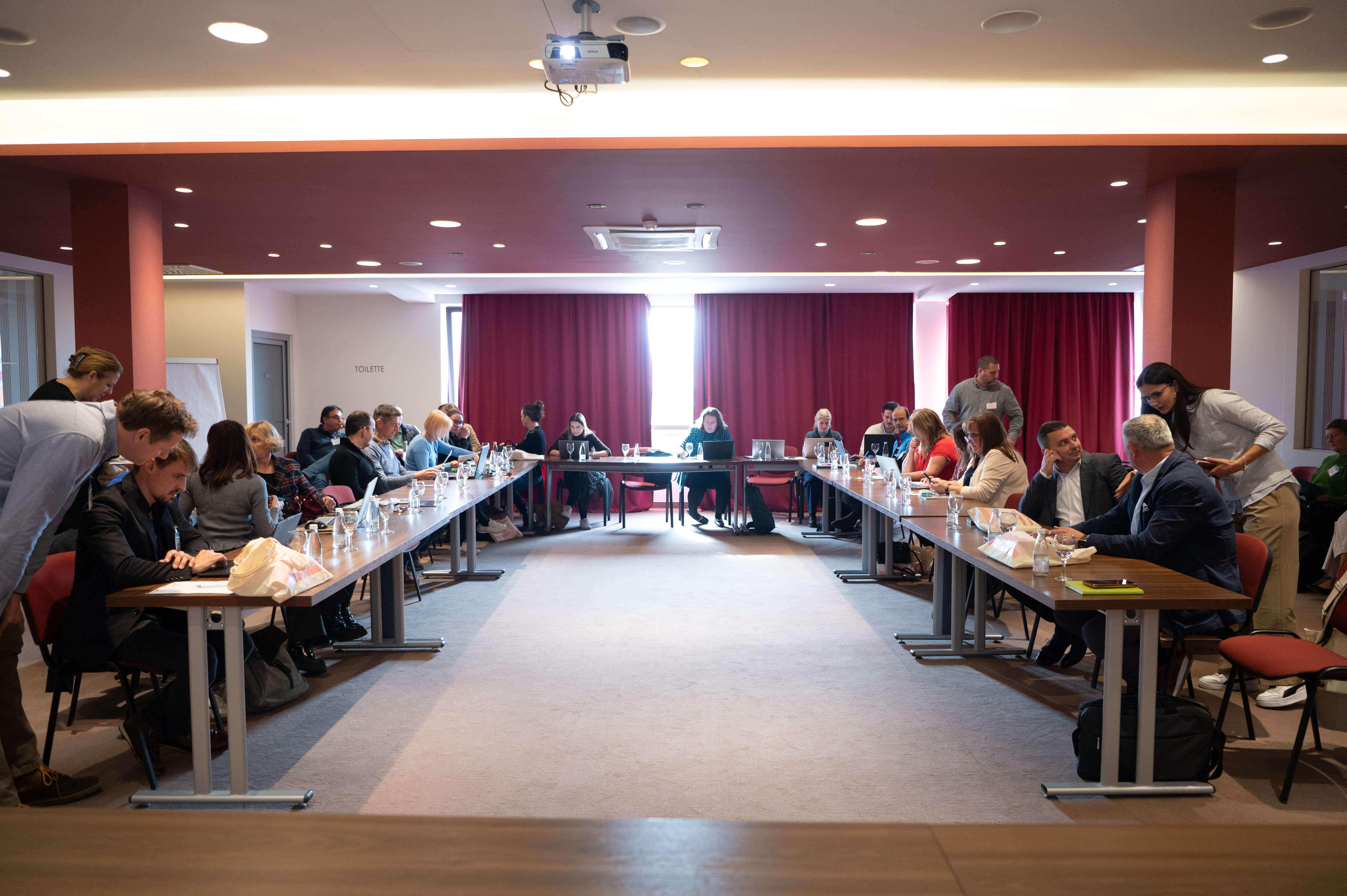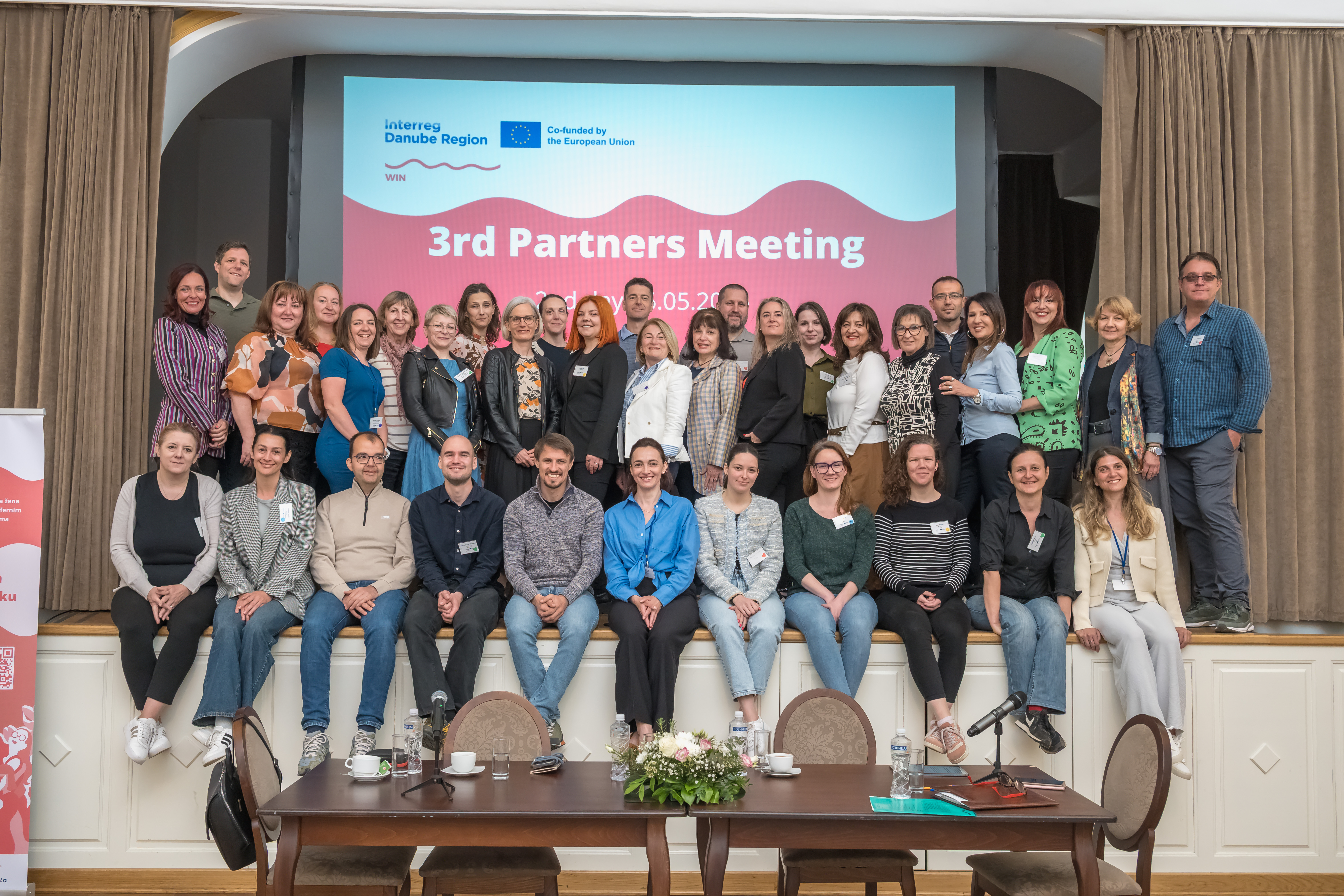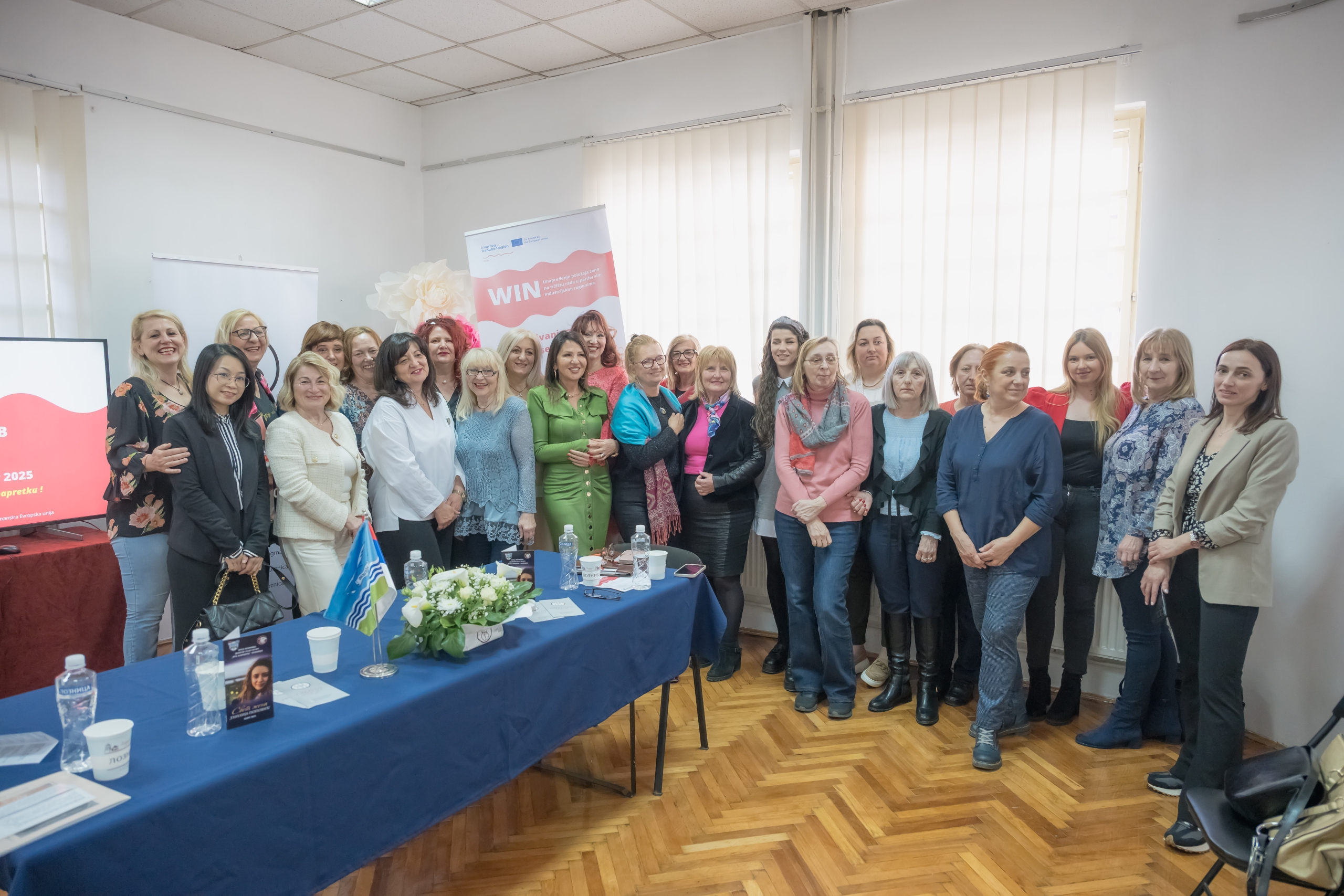
Empowering women, transforming regions: WINning together!
We are improving the position of Women in the labour markets of peripheral INdustrial regions.

The WIN project is an ambitious transnational initiative dedicated to addressing the unique challenges faced by women in peripheral industrial regions across the Danube Region. The project aims to drive meaningful change by promoting gender equality, improving women’s access to job markets, and fostering socio-economic resilience in traditionally male-dominated sectors.
Our aim and goals
The primary goal of the WIN project is to enhance the socio-economic standing of women in underserved regions. We aim to create sustainable job opportunities by empowering women with skills development, entrepreneurship support, and innovative career pathways. By breaking down socio-economic barriers, the project seeks to open up new avenues for women's participation in local labor markets, thus contributing to a more inclusive and dynamic regional economy.

Challenges we are tackling
The WIN project addresses the systemic challenges faced by women in peripheral industrial regions, which are often characterized by economic decline, outdated industrial structures, and limited job opportunities. These regions have traditionally been dominated by industries such as mining, manufacturing, and engineering—fields where men typically occupy high-skilled jobs while women are often restricted to lower-skilled roles.
WIN seeks to address these structural imbalances by removing cultural and institutional barriers, tackling skill gaps, and promoting equal access to economic resources.

Contributions and impact
The WIN project’s impact will be multi-faceted:
- Empowering women: By equipping women with essential skills and resources, we aim to boost their employability and encourage entrepreneurship.
- Fostering collaboration: Through cross-border cooperation, the project leverages the collective knowledge and expertise of its partners to create sustainable solutions for women in marginalized regions.
- Policy recommendations: The findings from our pilot regions will culminate in action plans and targeted policy briefs to guide decision-makers in fostering gender-inclusive economic policies.
The WIN project stands as a beacon of hope for women in peripheral industrial regions, working towards a future where every woman has the opportunity to realize her professional potential.

Project stages
WP1: Women’s needs and institutional barriers in labour markets of peripheral industrial regions
WP1 aims to deepen the understanding of women's challenges in the labour markets of peripheral industrial regions by focusing on women's needs and institutional barriers via a transnational overview, networking and knowledge exchange. The transnational overview aims to synthesise a cutting-edge theoretical understanding of the position of women in the labour markets of peripheral industrial regions and to conduct an empirical comparative study in 7 pilot areas of the Danube Region. The academic knowledge serves as a direct input for the creation of an applicative methodological toolkit for the development of social innovations to promote women's employment in peripheral industrial regions. The creation of theoretical and practical knowledge is highly supported by various forms of transnational networking and knowledge exchange (e.g. workshops, study visits, peer-review of policies, catalogue of good practises) within the WIN network and beyond.
WP2: Implementing social innovations for better labour markets for women in peripheral industrial regions
WP2 aims to implement 7 pilot actions in different peripheral industrial regions of the Danube Region by developing, testing and reflecting on the overarching concept of social innovation, while enabling regional diversification. Each pilot region will establish a WIN Innovation Group representing the project's target groups (women, employers, business support organisations, public authorities...). Each WIN Innovation Group will then focus on the respective pilot region and co-develop social innovations. To close the loop and get feedback from target groups and key stakeholders on the impact of the social innovations created, we will use human-centred evaluation tools and techniques. All findings and lessons learned from the piloting process, which includes the phases of development, testing and reflection, will be summarised in the WIN Social Innovation Booklet.
WP3: Capacity-building for women’s participation in the labour markets of peripheral industrial regions
WP3 aims to increase public and private institutional capacities for more effective and equal participation of women in the labour markets of peripheral industrial regions by focusing on innovative awareness-raising activities and effective policy-making. Awareness-raising activities aim to promote women's professional competences, skills and creative potential in order to raise their awareness of career opportunities. The core of the awareness-raising activities will be an innovative WIN awareness-raising campaign, complemented by the WIN pilot video and the transnational conference. A jointly developed campaign will have 7 national implementations allowing for modifications. The policy-making part aims to address cultural and institutional barriers that have led to gender inequality by developing 7 local/regional action plans and the policy recommendations to the EUSDR to improve the position of women in the labour markets.
News & Events
Read the most recent updates and explore the upcoming events.
Project overview
Need any help? Contact us!
Jani Kozina
Lead partner



